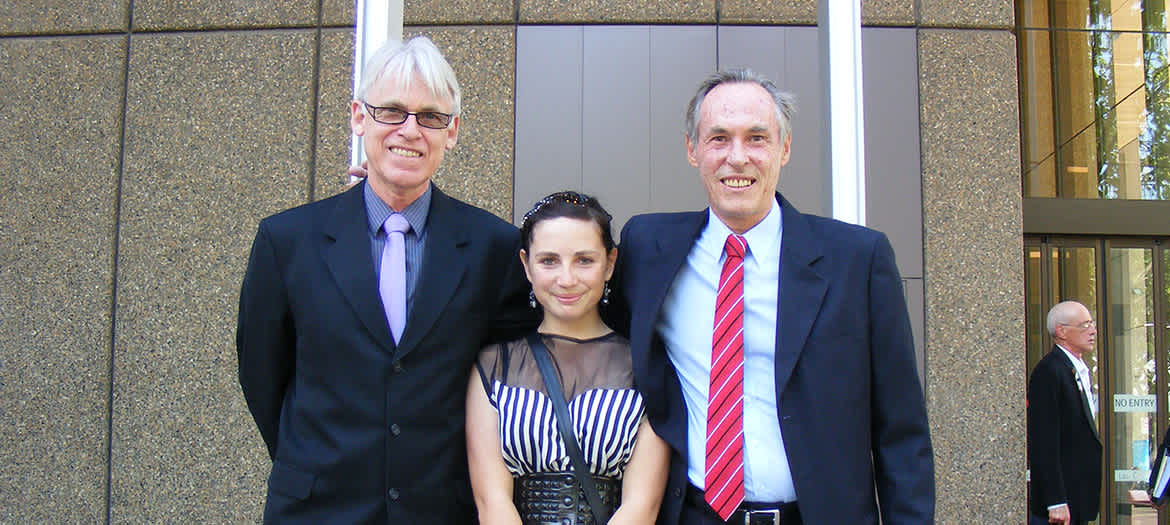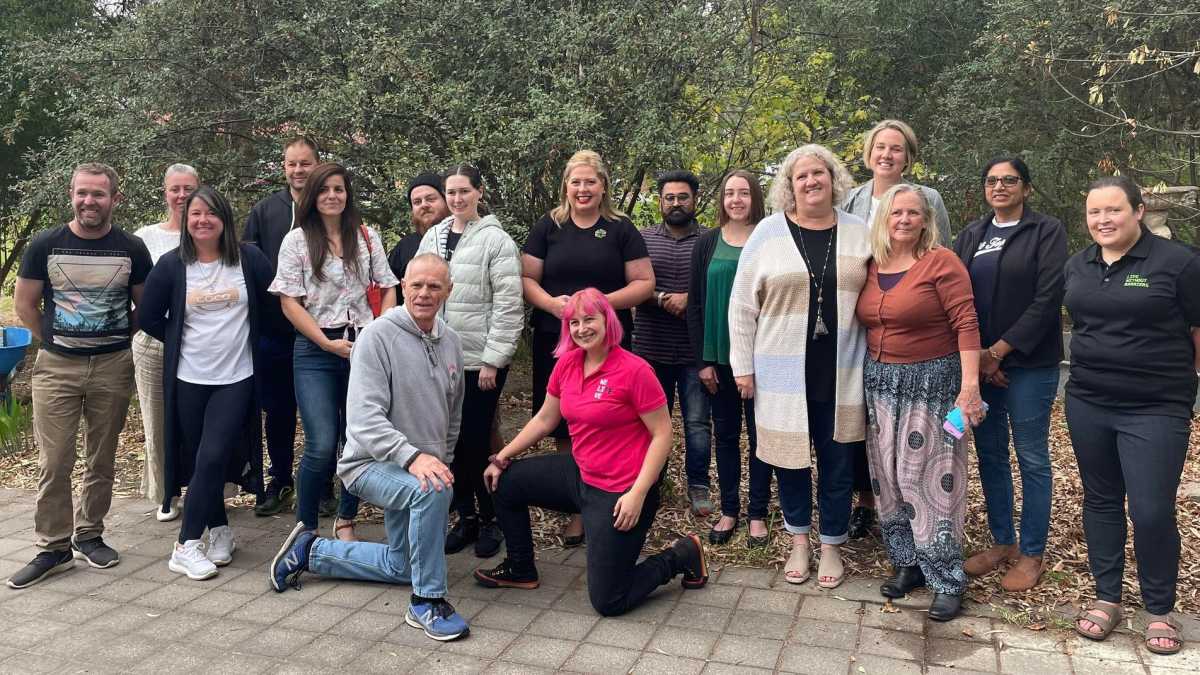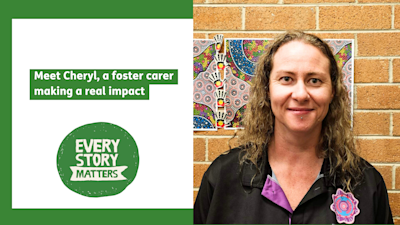How to become a carer in Australia can seem confusing, let's break it down!

Image: Respite carers Teta and Joe stand on a balcony and smile at the camera.
Foster carers in Australia play a vital role in providing a safe and nurturing environment for children and young people who are unable to live with their birth families. Although there are thousands of amazing foster care parents across Australia, how to become a carer is still a bit of a mystery to the public.
Today, we answer the top questions we get asked about the foster care system with the hope of helping you understand a little better what’s involved and break down some barriers.
1. What is foster care?
Foster care is a system in which children and young people who cannot live with their biological families due to various reasons are placed in the homes of approved and trained foster carers. These carers provide a stable and supportive environment for children in need.
Foster care agencies, like Life Without Barriers, are responsible for:
Supporting our wonderful foster carers and kinship carers.
Meeting the protection and care needs of children and young people in out-of-home care.
Working in collaboration with child protection, the government, and the child or young person's family to ensure the child’s best interests are met.
2. Who can become a foster carer?
Foster carers come from diverse backgrounds. At Life Without Barriers; single, partnered, gay, straight, young or senior – it doesn’t matter to us! If you have a desire, and the capacity, to provide a safe, respectful, caring environment for children, and want to welcome children into your home and life, you could be a good fit for foster care.
While there are some boxes that need to be ticked, the most valuable attributes you will bring are not the size of your home, the length of your CV, or your relationship status.
Life Without Barriers is searching for foster carers who will bring security, respect and joy into children’s lives.
If you have a stable home environment and are prepared to undergo the screening and assessment process, we want to speak to you!

Image: Same-sex mature male foster carers and their adopted teenage daughter smiling
3. How are foster carers screened and selected?
Becoming a foster carer involves a rigorous screening and assessment process. This includes background checks, interviews, reference checks, and training to ensure the safety and suitability of the carers.
Applications to become a foster carer take up to 12 months, but don't let that put you off. We make sure carers have the right training and support in place. At Life Without Barriers, we also take time to match the right foster carer with the right child or young person.
If you want to understand more about foster care and the application process, you can attend an information session either online or in person in your state.
Attend a foster care information session!
4. Do foster carers receive financial support?
Yes, foster carers in Australia receive financial support to cover the costs of caring for a child. This support may include a foster care allowance, which helps with the expenses associated with raising a child. The financial support varies depending on what state you are in and the care needs of that child or young person.
5. What types of children need foster care?
Children and young people who require foster care come from various backgrounds and may have experienced abuse, neglect, or family breakdown. Children in care are aged between 0 and 17 years, and most children entering care are over 5. Many children have siblings whom they need to live with whenever this is possible.
Find out about providing care for a sibling group here!
Australia is a multicultural country and children in care come from a variety of cultural and linguistic backgrounds too. Some are from newly arrived families who have experienced trauma and war. Others come from cultural backgrounds that are well-established in Australia.
Whenever possible, we will match children with carers who share their cultural and linguistic backgrounds. If this is not possible, our carers ensure children stay connected to the languages, cultures and religious practices that are important to them and their families.
There is no ‘standard’ young person that needs care, just as there is no standard type of person that could be a carer!
6. How long can a child stay in foster care?
The duration of a child's stay in out-of-home care can vary widely. It can range from a few days or weeks to several years, depending on the child's specific circumstances and the goals set by child protection authorities.
Providing care works differently for different people, here are some of the foster care options Life Without Barriers supports.
Emergency or Crisis Care - children may need somewhere to stay immediately, for a night or even a few weeks. The call for emergency foster care can happen anytime.
Respite - respite care gives children an opportunity to mix in a different social network while their permanent carer takes a short break.
Short-term -while plans for longer-term care are made, or until difficult situations at home are resolved, children need a safe, stable, caring environment.
Long-term - sometimes children need long-term care and support – a home where they can heal and grow and keep in contact with their family.
Kinship care - living with a relative or close family friend can help protect the important connections a child has to their family, culture and community.
Guardianship care - through an Order of the Children's Court, guardianships offer children stability and permanency while still protecting legal ties to their family.

Image: Foster care ambassador Katie standing outside. She is facing away from the camera and 'Be a Foster Carer ask me how' is printed on her shirt.
7. What support services are available for foster carers?
Foster and kinship carers receive ongoing support from Life Without Barriers, which includes ongoing training and access to support networks – like MOCKINGBIRD FAMILY™. Our foster carers are never alone in their caring journey. It can be difficult to comprehend the experiences children bring with them, so it is important that carers feel supported and confident in their role. This support is crucial in helping foster carers provide the best possible care for children and young people!
Training: we provide carers with a range of learning opportunities suited to their level of experience and the needs of children in their care.
24/7 carer support: our carers have access to support at any time of the day or night for advice, support and direction in stressful situations.
Financial support: carers receive a tax-free allowance to support the needs of children placed in their care.
Specialist support: our specialist staff work with children and alongside carers where additional support is needed.
Respite: for a night or a weekend, children in care may spend time with a respite carer, an opportunity to strengthen social and family networks while their carer takes a short break. This type of care is only offered when it is in children's interests.
Carer networking: Talking to other carers is sometimes the best form of support. Through regular carer events, we create opportunities for carers to share their concerns, celebrate successes and provide feedback to the Life Without Barriers team.

Image: Life Without Barriers staff and carers gathered in a group photo during the North-east MOCKINGBIRD FAMILY™ Constellation launch.
8. How do I apply to become a foster carer?
To become a carer, you can reach out to our friendly and helpful foster care specialists who are ready to answer your questions. Whether you're looking to start the process or just want more info, our team can help.
You can contact us by phone 1300 592 227 or email carers@lwb.org.au. We are currently staffed Monday to Saturday. Or, you can fill out an enquiry form and we will contact you.
If you aren't ready to speak to a human yet, that's ok! We have more carer FAQs here.
Becoming a foster carer is a rewarding experience that can make a significant difference in a child's life. If you're considering foster care, reach out to your local child protection agency or a foster care organisation to get started on this fulfilling journey. Foster carers play a vital role in nurturing the future of Australia’s children, and your commitment can make a lasting impact!


